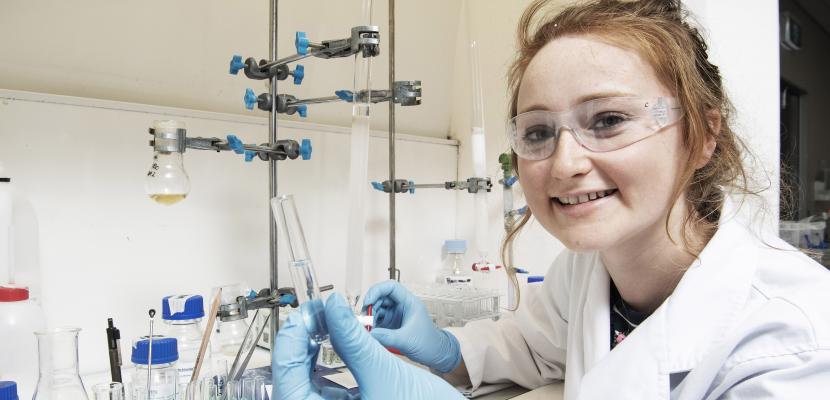
New research by a Bond University PhD candidate may help slow the spread of cancer, giving medical professionals a better chance to extend the life of those battling the disease.
Amanda Tauber took out top place at this year’s Three Minute Thesis contest held at Bond University, with her presentation How do we treat an adaptable disease? winning her a $2000 research travel grant.
She will represent the university at the contest’s Asia-Pacific final on October 4.
Tauber is halfway through work on her PhD and said rather than looking at the initial cancer cell mutation, she was instead focusing on the ability of the cancerous cells to grow and spread.
“A lot of the problem we have with late-stage diseases is we have treatments for them, but the rate in which these cells are growing is so fast, and they’re changing and mutating so quickly, we can treat them for one mutation but by the time we get rid of that, they’ve gone five steps on.”
Tauber’s work targets an enzyme which is produced when a cancerous cell metastasizes, or begins to spread.
“When this enzyme is active and working, it allows the cells to take in a lot more energy, so it can travel or grow a lot faster. But also when we try to treat it as a bad cell, it blocks that signal, so the cells are less susceptible to damage as well as being able to grow a lot quicker.
“The idea is if we could switch that enzyme off, we’d make the cells a lot more susceptible to damage.”
She said switching the enzyme off also increased what was known as the “therapeutic index” of the treatment drug, the point of how much needed to be applied for it to work, as opposed to how much needed to be applied before it became toxic.
“For a lot of chemotherapies the index is very narrow. We want to have this tool that will allow doctors to use the drugs they’ve already got, but make them more efficient, and target the cancers a lot better.”
Tauber said if she thought too much about the potential significance of her studies, it quickly became “too exciting.” Instead, she’s remaining focused on the work ahead of her, as well as preparing for the Three Minute Thesis Asia-Pacific final, which carries a $5000 research travel grant prize.
She’s also passionate about the importance of educating people on the science around cancer treatment.
“If I screw up the speech, at least I’m still pushing through and educating about science. Especially when it comes to cancer, a lot of the questions you get is ‘why isn’t it fixed yet?’
“You can do the science, you can do the research, but you’ve also really got to make it matter to someone.”
When Tauber was younger, she thought she might pursue a career in engineering – and although it hasn’t worked out that way, she still sees parallels with her current studies.
“Looking back at it now, especially with chemistry and drug design, you are doing that engineering, just on a much smaller scale, and you’re putting together pieces, it’s just instead of bricks and clay, it’s atoms and bonds.”